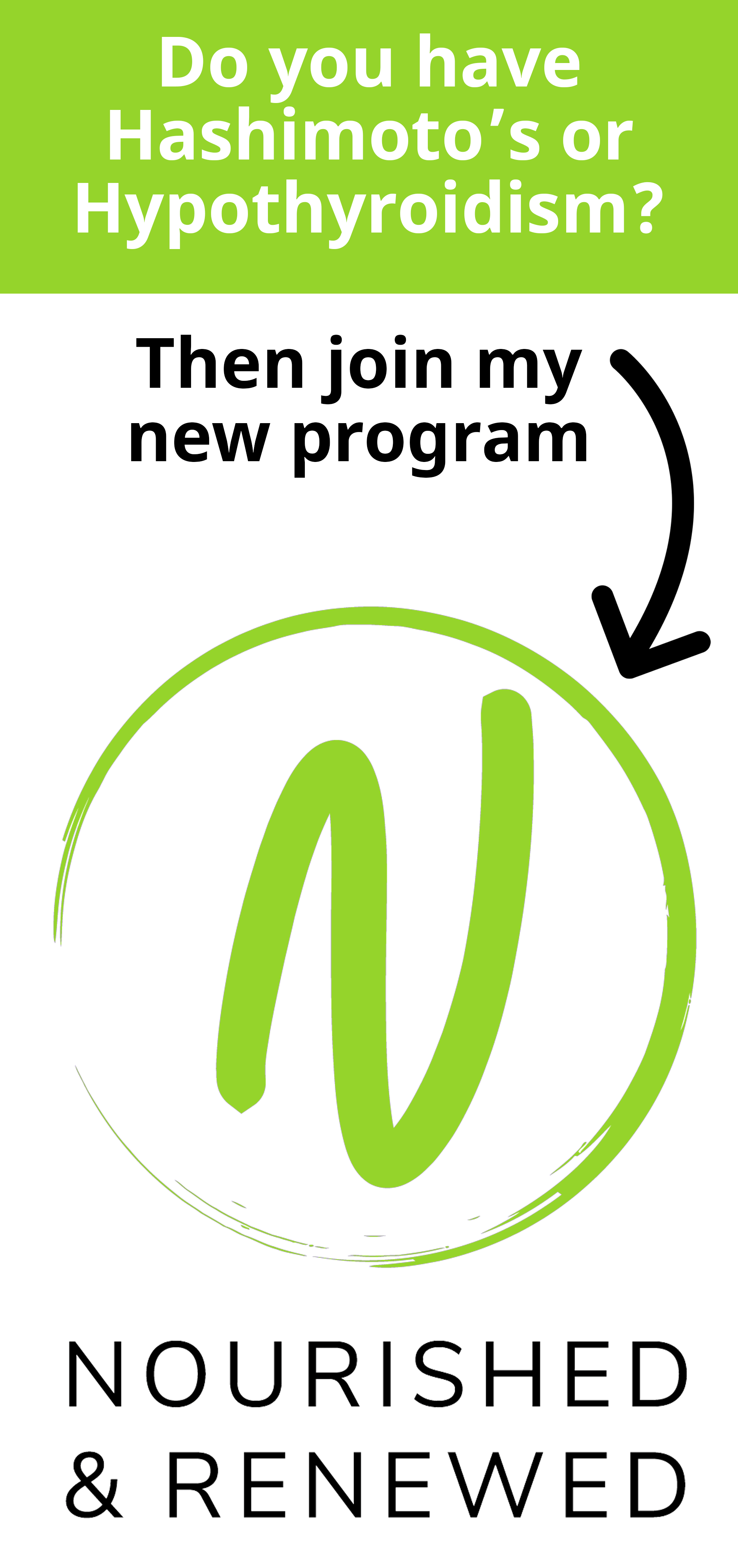One of the Most Important Nutrients For Your Health
Magnesium might just be a miracle mineral.
I know - that sounds too good to be true.
But, honestly, when clients ask me about the single most important nutrient (especially for supplementation - more on this later), I always answer the same - magnesium.
Why?
Well, for starters, most people are deficient in magnesium (the estimates are as high as 80% of the population).
This is due to excessive exposure to nitrogen (like from fertilizers), phosphorus (like from soft drinks), copper (like from plumbing/pipes), and iron (like from excessive red meat and/or supplemental iron which is hard to absorb).
These other minerals DEPLETE the body of magnesium.
The average adult body contains approximately 25 g of magnesium, with 50-60 percent in the bones. And the rest are found in soft tissues like the muscles and organs.
You may not know this, but, it’s something that SHOULD be taught in primary school: magnesium is a mineral that is essential for human function.

What Does Magnesium Do For Your Body?
Magnesium is required for more than 300 biochemical reactions (like pretty much all of them!) in the body, including:
- maintaining nerve and muscle function
- supporting a healthy immune system
- regulating a healthy, steady heartbeat
- supporting the development and maintenance of strong bones
- supporting healthy blood glucose levels and helping glucose get to where it needs to go - inside the cell
- aiding in energy production, reducing fatigue, and repairing the body after exercise
- supporting healthy hormone balance
- maintaining a stable and relaxed mood
- AND MORE
And, this isn’t new info.
Research relevant to magnesium has been accumulating for more than 40 years.
According to the GreenMedInfo website, magnesium can help support the following health conditions and symptoms:
- Fibromyalgia
- Atrial Fibrillation (abnormal heart rhythm)
- Diabetes, Type 2
- Premenstrual Syndrome (PMS)
- Anxiety
- Cardiovascular Disease
- Migraines
- Aging
- Muscle Cramps
- Fatigue
Symptoms of Magnesium Deficiency
How do you know if you are in need of this mineral?
The first symptoms of deficiency can be subtle.
Since most magnesium is stored in the tissues, leg cramps, foot pain, or muscle 'twitches' can present as the first sign.
Or, in many cases - just not feeling “right” - especially after exercise. Like work-out pain that never goes away.
Other very early signs of magnesium deficiency include loss of appetite, nausea, vomiting, fatigue, and weakness.
Are you tired? You may benefit from magnesium.
As magnesium deficiency worsens, numbness, tingling, seizures, personality changes, abnormal heart rhythms, and coronary spasms can occur.

Here are the most common signs of low magnesium:
- Fatigue
- Aches and pains
- Mood problems
- Muscle cramps
- Migraines
- PMS
- Irregular sleep patterns and insomnia
- Heart irregularities
- Muscle twitches and spasms
- Anxiety
- Digestive trouble
- Lack of appetite
- Constipation
- Brain fog
- Memory problems
- Depression
- ADHD
Magnesium and the Thyroid
While magnesium is critical to the basic healthy functioning of all individuals, I have found that it is one of the most important, and oftentimes most deficient, nutrients for those with Hashimoto’s.
Most people with Hashimoto’s have numerous micronutrient deficiencies.
It can occur as a result of eating nutrient-poor foods, having inflammation from infections or food sensitivities, taking certain medications, or having an imbalance of gut bacteria.
Factors like low stomach acid, fat malabsorption, and a deficiency in digestive enzymes can prevent those with Hashimoto’s from absorbing nutrients from the food they eat.
Insufficient thyroid hormones can also lead to nutrient deficiencies, as it makes nutrient extraction from food more difficult and less efficient.

Magnesium + Thyroid Hormones (T3 and T4)
The hormone T4 is an inactive hormone that the thyroid produces.
When activated, T4 turns into T3, which is when the thyroid hormones begin to positively impact cell functions in the body.
Magnesium performs double-duty when it comes to this process of activating T4 into T3.
Magnesium is responsible for converting the inactive T4 thyroid hormone into the active form of T3.
This is extremely important because the metabolism of your body cells are enhanced by T3, not inactive T4.
Magnesium deficiency is related to goiter, or an enlarged thyroid gland. Another important nutrient in preventing goiter is iodine, but magnesium is right there helping too.
Magnesium helps you to make more T4 in the thyroid gland.
Without magnesium, many of the thyroid enzymes that make thyroid hormone simply could not function.
How Do You Improve Thyroid Function with Magnesium?
There are two ways to harness the power of magnesium to improve thyroid function – changing the diet and taking supplements.
The very first step in addressing concerns involving a poorly functioning thyroid, aside from seeing a physician, is to improve your diet.
The average American doesn’t eat the recommended daily servings of fruits and vegetables.
This becomes an issue over time since a diet high in a variety of fresh, preferably organic, produce is the best natural source of magnesium.

What Foods are Rich in Magnesium?
The best sources of magnesium-rich foods are basically all green foods. Yep, veggies.
Chlorophyll has a magnesium atom at its center. This enable plants to capture solar energy and convert it into metabolic energy,
Without magnesium, in fact, plants could not utilize the sun's light energy.
Magnesium, however, in its elemental form is colorless, and many foods that are not green contain it as well.
Magnesium is naturally present in a variety of foods including:
- spinach
- Swiss chard
- beet greens
- pumpkin seeds
- turnip greens
- summer squash
- nuts and seeds
- Navy beans, pinto beans, lima beans and kidney beans
- tempeh (fermented soybeans)
- sesame seeds
- barley, buckwheat, brown rice, quinoa, and millet
Changing your diet is really important.
But, it will take time before your body’s magnesium stores are filled and functioning at optimal levels.
While you wait for all your veggies to take effect, it isn’t a bad idea to also take a magnesium supplement.
Supplements are generally a good idea if you are unable to consume a proper diet on a regular basis.
If you’re on medications that deplete magnesium, or otherwise are concerned you may not be getting enough magnesium, supplements is also an option for you.

How Can You Be Sure Your Magnesium Levels Are Low?
You can consult your doctor who may order a blood test to determine if you have low serum magnesium.
This test often typically misses a large percentage of people with very real and very problematic magnesium deficiencies.
The problem with this test is that magnesium is not in your blood.
In fact, 99% of the magnesium in the body is in the cells; while only a mere 1% of your body's total magnesium is in the blood.
This makes a blood test for magnesium nearly worthless in all but the WORST magnesium deficiency scenario.
There is also the Spectracell Micronutrient Test - a pioneer in the field of functional micronutrient testing.
The test measures lymphocyte growth and detects functional intracellular deficiencies of vitamins, minerals, amino acids and antioxidants.
These reflect each individual patient's metabolic processes and immune health.
Magnesium is predominantly found intracellularly, where it is vital for proper cell functions.
Therefore, it’s ideal to test the intracellular levels of magnesium in order to determine the best course of action.
Magnesium Supplement Options to Support your Total Health (and Thyroid!)
In my opinion, a therapeutic dose of magnesium is not possible to achieve with food alone.
While you can’t necessarily overdose on a magnesium supplement, it is possible to experience unpleasant side-effects.
Whenever you introduce a new supplement into your regimen, it’s always a good idea to first consult your doctor. And, introduce the supplement intentionally and slowly.

Here are the top forms of magnesium and the main considerations for taking each:
Magnesium Chelate – One of the best types of magnesium as it replicates the magnesium naturally found in foods.
For the otherwise healthy individual looking to maintain magnesium storage, this is the best supplement to go with.
This option is also much gentler on the stomach.
Magnesium Citrate – Often used by those pursuing magnesium supplementation for digestive ease or treating constipation. Can cause a laxative effect when taken in too high of a dose.
Magnesium Glycinate – This option is most often chosen for those experiencing magnesium deficiency side effects or those with a thyroid disorder.
It is easily absorbable by the body and easy on the digestive tract like magnesium chelate. (This is the form of magnesium I take and most often recommend for my clients.)
Magnesium Threonate – Unfortunately this supplement is more difficult to find in health food stores and pharmacies, despite being a very effective magnesium supplement.
It is one of the most absorbable options as it can penetrate mitochondrial barriers.
Magnesium Chloride Oil – As the name suggests this magnesium supplement is in liquid form, commonly referred to as oil.
Magnesium oil can penetrate the skin and still be absorbed by the body, though less effective.
This can be useful for helping achy joints and body pain, and it’s also a good choice for those with very sensitive stomachs.
Magnesium Dosage
What is the proper dose of magnesium in supplement form? There are many factors that must be considered and everyone is different.
Most nutrition experts state that doses of 350 mg daily are safest for most adults.
You can find the dose that is right for you by slowly ramping up in 100 mg increments every couple of days.
When you feel that your stools become loose or you feel any digestive discomfort, go back down to the next lower level - this is the level that is right for you.
For me, I take between 400-800 mg of magnesium citrate per day and I do not have any uncomfortable digestive side effects.
That is a dose I have discovered that works for me.
That amount primarily helps my muscles to relax (especially when I am stressed or with exercise!), supports easy/deep sleep, keeps my mind calm, and my outlook positive.

Does magnesium supplements interfere with thyroid medication?
Magnesium can affect the absorption of thyroid medications, so it’s best to space out magnesium from your thyroid medications.
In other words, if you take your thyroid medication when you wake up each morning, then I recommend taking magnesium at bedtime.
If you are taking a larger dose of magnesium, and do not want to take all of it at one time, I suggest taking one half of your dose in the afternoon and the rest at bedtime.
If you have concerns about how magnesium supplements (or any supplements) will interact with your medications, you should consult with your practitioner.
Do You Need More Than Magnesium For Your Hashimoto's?
If you have Hashimoto's and think that supplementation with magnesium may help you, use this article to get started.
For some people, adding magnesium alone is not enough to remedy some of your most complex issues when you have autoimmune disease.
You might be interested in my 30-day online program: Nourished and Renewed with Hashimoto's - it provides the essential tools and resources for you to start building your personal health foundation at your own pace.
I also offer the Happy & Healthy Adult Program – designed for individuals with Hashimoto’s looking for a personalized, sustainable and joyful approach to nutrition and lifestyle measures which can help heal your thyroid.
This program includes The Spectracell Micronutrient Test - the very best tool available for assessing ALL of your individual nutrient needs - magnesium PLUS about 30 more nutrients - all of which play a role in your optimal health.
FUN FACT: I do the Spectracell test annually for myself, and each year I adjust my own nutrient needs based on the results.
I believe so strongly in the programs I have developed for my clients that I apply the same nutrition principles to my own life in order to support my best health with Hashimoto’s.
The nutrients we replenish thoughtfully through a customized, one-on-one program will likely change your life and restore your health and vitality.
Are you ready? Let’s talk.





